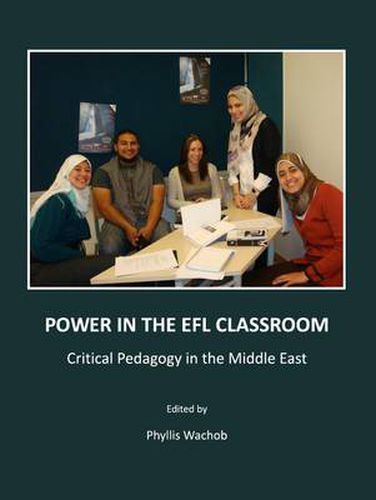Readings Newsletter
Become a Readings Member to make your shopping experience even easier.
Sign in or sign up for free!
You’re not far away from qualifying for FREE standard shipping within Australia
You’ve qualified for FREE standard shipping within Australia
The cart is loading…






Critical pedagogy is not a set of ideas, but a way of ‘doing’ learning and teaching (Canagarajah, 2005). This definition puts CP squarely in the classroom and leads us to view how teachers interact with students and how students treat one another, while negotiating institutional and societal expectations. The chapters in the book use a variety of methods to address questions of power within educational institutions, from classrooms to the ministries of education. All the contributors are, or have been, teachers in the Middle East, from Egypt to Iran. Their nationalities range from Egyptian, to American, Canadian, British, Tunisian and Iranian. Ten of the contributors are women. All have conducted research and/or invited participation from among students and fellow teachers to explore issues of Critical Pedagogy from various perspectives. The question of physical space relates to power but is also related to linguistic space; student choice is not only related to linguistic space but also to motivation and thus empowerment. Changing teachers’ beliefs leads to empowerment for teachers, but also empowerment for students. Educational policy that recognizes social and personal identity reflects back to personal motivation. These studies meet and mesh, complement and sometimes take different viewpoints. However, all the studies embrace the concept that we must respect and nurture the human in our students, that we as teachers are the front line as enablers of our students’ empowerment. If we do not provide the space, and honor their dignity, our students cannot claim and embrace their power.Canagarajah, S. (2005). Critical Pedagogy in L2 Learning and Teaching. In E. Hinkel (Ed.), Handbook of Research in Second Language Teaching and Learning (pp. 931-949). Mahwah, New Jersey: Lawrence Erlbaum Associates.
$9.00 standard shipping within Australia
FREE standard shipping within Australia for orders over $100.00
Express & International shipping calculated at checkout
Critical pedagogy is not a set of ideas, but a way of ‘doing’ learning and teaching (Canagarajah, 2005). This definition puts CP squarely in the classroom and leads us to view how teachers interact with students and how students treat one another, while negotiating institutional and societal expectations. The chapters in the book use a variety of methods to address questions of power within educational institutions, from classrooms to the ministries of education. All the contributors are, or have been, teachers in the Middle East, from Egypt to Iran. Their nationalities range from Egyptian, to American, Canadian, British, Tunisian and Iranian. Ten of the contributors are women. All have conducted research and/or invited participation from among students and fellow teachers to explore issues of Critical Pedagogy from various perspectives. The question of physical space relates to power but is also related to linguistic space; student choice is not only related to linguistic space but also to motivation and thus empowerment. Changing teachers’ beliefs leads to empowerment for teachers, but also empowerment for students. Educational policy that recognizes social and personal identity reflects back to personal motivation. These studies meet and mesh, complement and sometimes take different viewpoints. However, all the studies embrace the concept that we must respect and nurture the human in our students, that we as teachers are the front line as enablers of our students’ empowerment. If we do not provide the space, and honor their dignity, our students cannot claim and embrace their power.Canagarajah, S. (2005). Critical Pedagogy in L2 Learning and Teaching. In E. Hinkel (Ed.), Handbook of Research in Second Language Teaching and Learning (pp. 931-949). Mahwah, New Jersey: Lawrence Erlbaum Associates.